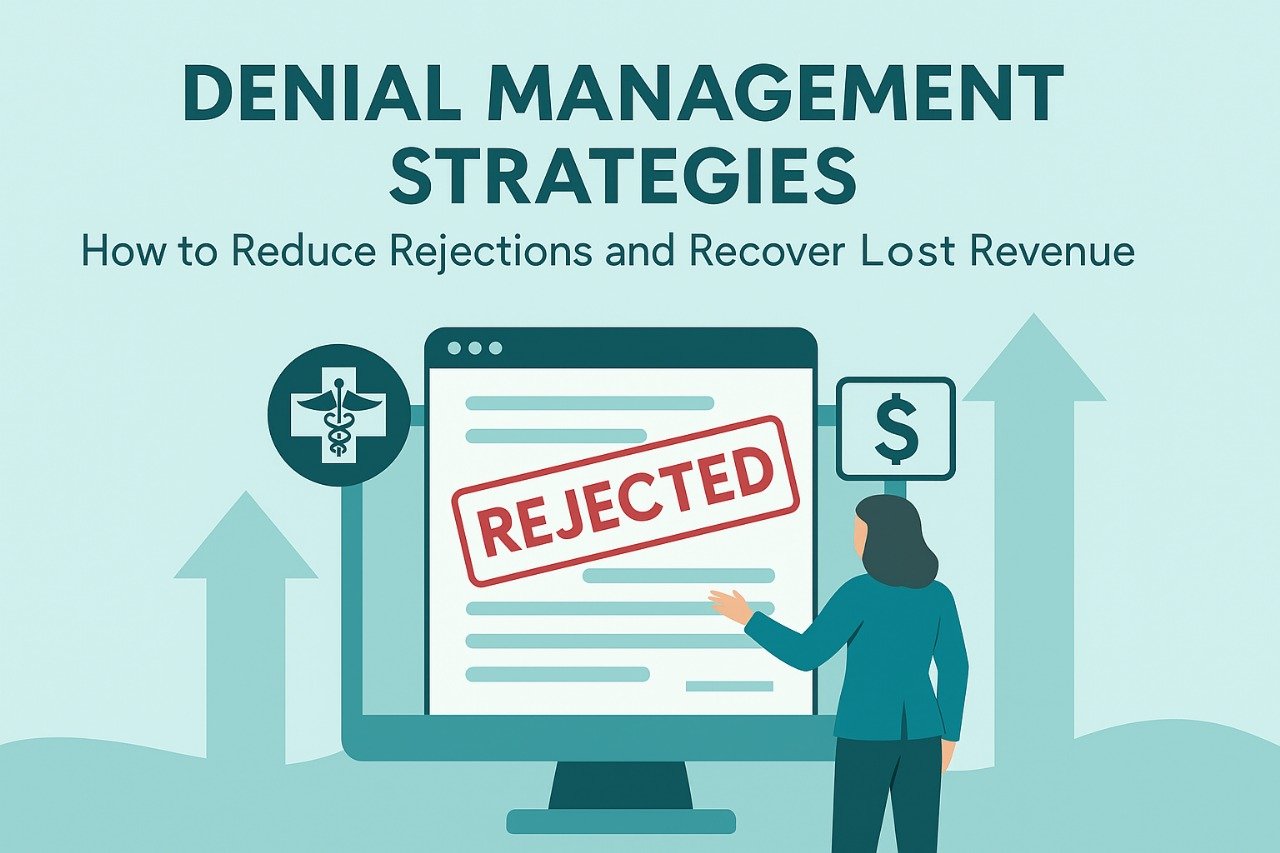
Claim denials are one of the biggest obstacles to steady cash flow in healthcare practices. Whether due to missing documentation, incorrect codes, or payer-specific rules, denied claims slow down reimbursement, frustrate staff, and increase administrative overhead. Understanding the top reasons for claim denials, learning effective denial management techniques, and mastering the process of appealing denied insurance claims can transform your revenue cycle from reactive to resilient.
Why Claim Denials Are a Growing Concern
Claim denials are on the rise. According to the 2023 Change Healthcare Revenue Cycle Index, nearly 1 in 5 claims submitted to insurers is initially denied—costing providers billions in delayed or lost revenue annually. Worse yet, around 65% of these denied claims are never resubmitted.
When denial management is weak, practices leave money on the table. That’s why proactive denial prevention and skilled appeals handling are now essential components of medical billing.
Top Reasons for Claim Denials
Before you can fix denials, you need to understand what’s causing them. Here are the top reasons for claim denials across clinics and small practices:
1. Missing or Incomplete Information
Missing patient details, policy numbers, or provider identification can cause immediate rejection. Even a misspelled name or incorrect birthdate can trigger denial.
2. Incorrect or Outdated Coding
Using the wrong CPT, ICD-10, or HCPCS codes—or applying modifiers incorrectly—will lead to automatic denials.
3. Lack of Prior Authorization
Many procedures, tests, or medications require prior authorization. Skipping this step results in non-payment, even if the service was medically necessary.
4. Eligibility Issues
If a patient’s insurance coverage was inactive or the service isn’t covered, the claim may be denied.
5. Duplicate Claims
Resubmitting a claim without proper correction can flag it as a duplicate.
6. Service Not Medically Necessary
If the payer believes the diagnosis does not support the procedure, they may deny it for lack of medical necessity.
7. Timely Filing Issues
Each insurer has deadlines for claim submission—sometimes as short as 30 days. Missing this window results in denial with no chance of appeal.
Effective Denial Management Techniques
Reducing denials begins before the claim is even submitted. Here are effective denial management techniques to help you minimize errors, monitor trends, and maximize reimbursements:
a. Track and Analyze Denials
Set up dashboards to track denial rates, reasons, and resolution timelines. Categorize denials (e.g., coding errors, eligibility, authorization) to find the root causes.
Pro Tip: Aim for a denial rate under 5%. If it’s higher, dig deeper into your processes.
b. Implement Pre-Billing Audits
Review claims for errors before submission. Use software that flags missing data, invalid codes, or out-of-network providers in real time.
c. Verify Eligibility Upfront
Always verify insurance before the patient visit. Automated eligibility tools can check active coverage, copays, and deductibles to prevent surprises.
d. Establish a Clear Authorization Process
Designate team members to manage authorizations and maintain payer-specific requirements. Keep a log of authorization numbers linked to the patient’s chart and claim.
e. Improve Documentation Quality
Ensure provider notes support the procedures billed. If the documentation doesn’t justify the claim, it’s vulnerable to denial or audit.
f. Standardize Staff Training
Train front-desk, clinical, and billing teams on the full claim lifecycle. Everyone should understand how their actions impact revenue.
g. Work With Experienced Billers or Outsourcing Partners
Certified coders and denial experts can drastically improve your first-pass acceptance rate and reduce rework.
Appealing Denied Insurance Claims
Even with best practices in place, denials can still happen. That’s why knowing how to navigate appealing denied insurance claims is key to recovering revenue.
Step 1: Understand the Denial Reason
Review the Explanation of Benefits (EOB) or Electronic Remittance Advice (ERA) to determine why the claim was denied. Look for adjustment codes and appeal windows.
Step 2: Gather Documentation
Prepare supporting documents, including:
- Original claim
- Medical records
- Proof of authorization
- Provider notes
- Any prior approvals or communications with the payer
Step 3: Write a Strong Appeal Letter
Appeal letters should be professional, concise, and specific. Include:
- Patient and provider information
- Date of service
- Denied procedure or service
- Reason for appeal
- Attached documentation
Use payer-specific forms when required and submit within the appeal deadline.
Step 4: Follow Up Persistently
Don’t assume your appeal was reviewed promptly. Contact the payer 10–15 business days after submission to confirm receipt and ask for status updates.
Step 5: Track Appeal Outcomes
Keep detailed records of appeal decisions to build a playbook for future success. Learn what types of denials are most likely to be overturned and refine your strategies.
Tech and Tools for Denial Prevention
- Claim Scrubbing Software: Flags errors before submission
- Eligibility Verification Tools: Check coverage in real time
- RCM Dashboards: Visualize denial trends and collections
- Automated Appeals Workflow: Standardizes resubmission process
- AI-Powered Predictive Analytics: Forecasts high-risk claims
How E Billing Providers Can Help
At E Billing Providers (EBP), denial management is more than a reactive process—it’s a proactive strategy. Our certified coders and RCM experts specialize in identifying the top reasons for claim denials and applying effective denial management techniques tailored to your practice.
From pre-bill audits and authorization tracking to rapid, personalized appeals, our goal is to help you recover every dollar you’ve earned. We don’t just submit claims—we manage the full revenue cycle with an emphasis on speed, accuracy, and compliance.
Whether you’re a primary care provider, surgical center, or behavioral health clinic, EBP can help reduce your denial rate and boost your bottom line.
📞 (619) 493-3926 | 📧 info@ebproviders.com
🌐 www.ebproviders.com
📅 Book a free consultation: ebproviders.com/book-now
Let’s Stop Denials Before They Happen.



